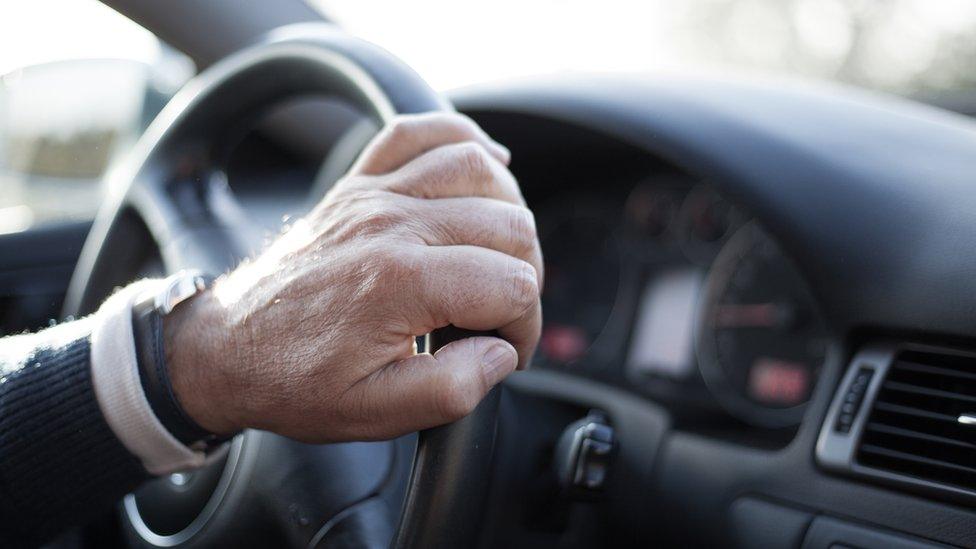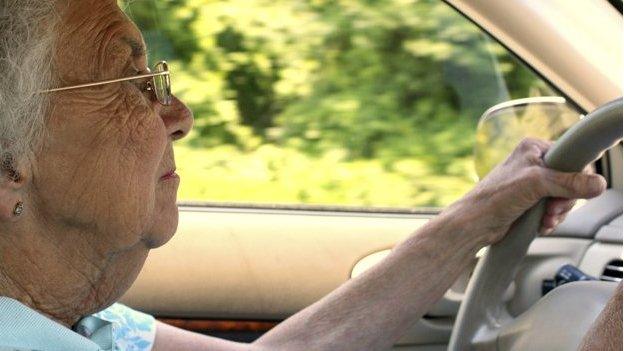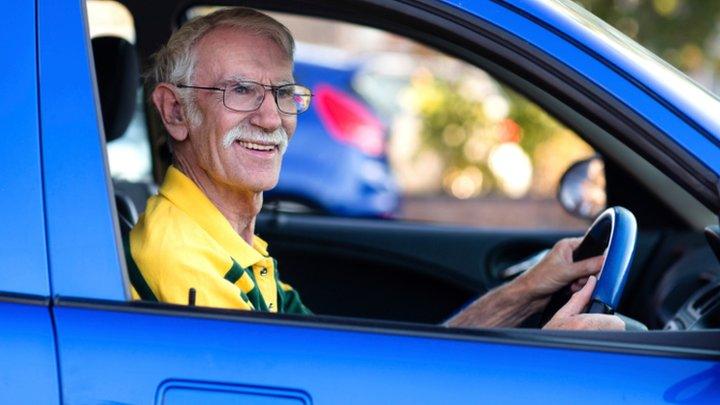Older drivers no more dangerous, accident data study says
- Published

New research from Swansea University challenges the idea that older people are dangerous drivers.
Analysis of data on vehicle accidents showed that drivers aged 70 are involved in 3-4 times fewer accidents than 17-21 year old men.
By observing older drivers, the study found that most mistakes made occurred on right turns and overtaking.
Young men are more likely to be involved in incidents resulting from driving too fast and losing control.
The research findings were outlined at the British Science Festival in Swansea, external.
Charles Musselwhite, associate professor of gerontology at Swansea University's Centre for Innovative Ageing, found that dangerous driving is not generally an issue for older people.
While the elderly are more likely to be involved in an accident than the safest-driving cohort in their 40s, they are less likely than very young drivers to be involved in accidents.
Older drivers tended to make mistakes when they felt under pressure from other road users, the study found.
The most accident-prone age group, by a substantial margin, is young men. Indeed, 17 to 21 year-olds are three to four times more likely to have an accident than 70 year-olds.
Accident demographics
There is an increase in accidents among the over-75 age group, which Prof Musselwhite puts down to increasing physical frailty.
Older and younger drivers are also involved in different types of accident. While young men are more likely to be involved in single vehicle incidents, usually caused by speeding and losing control, older people tend to have smaller impact collisions.
Older women are more likely to have small accidents when doing tight manoeuvres. Older people are also more likely to be involved in accidents involving other older drivers, suggesting they make similar errors.
However, Prof Musselwhite said that older drivers compensate for their declining powers by driving more carefully, slowing down, leaving larger gaps, and choosing better weather and quieter times to go out in the car.
He also noted that this may change as people work and live longer.
Road safety concerns have prompted discussion about re-testing older drivers, but such programmes have been conducted in other countries like Australia and Denmark without improving results.
The question of whether and under what circumstances older people should face losing their licence is complicated. Prof Musselwhite argues that officials should implement more rigorous testing, especially eye tests, and extra monitoring of the effects of prescription drugs.
The solution right now is a market-based one: at some point it becomes so expensive for old people to insure their cars that they have no choice but to give up driving.
Loss of independence
Clearly there are issues when conditions such as dementia or other health problems affect cognitive skills, but Prof Musselwhite says that denying old people a licence should not be taken lightly.
They often need to drive when public transport is not convenient and shops have moved from villages to out-of-town locations.
There is also a psychological need. Older people told Prof Musselwhite that driving was of great importance for them, comparing losing their licence to losing a limb.
Older people say they need to drive for the feeling of freedom and mobility, to feel useful and have a role in the family. Taking away driving licences can lead to depression and loss of mobility.
Rather that urging restrictions on older drivers, Prof Musselwhite said that "a lot of existing infrastructure doesn't work all that well for the elderly". He suggested that dedicated filter arrows for right turns across traffic, or wider lanes, could help. But he noted that this might inhibit traffic flow, or even encourage young drivers to drive faster.
There are numerous problems for older pedestrians as well. For instance the average speed that someone needs to cross the road is set at 4.7km/h. In separate studies, 86% of old people did not walk that fast, rising to 94% for older women.
As mobility and freedom of movement are closely linked to physical and mental wellbeing in older people, Prof Musselwhite said driverless cars are a promising development for future elderly cohorts.
- Published22 June 2016
- Published28 August 2015

- Published22 December 2013

- Published23 September 2013
